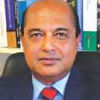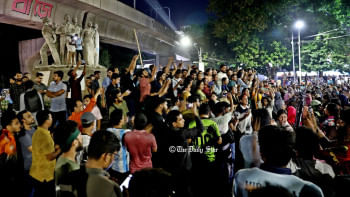Constitutional Law of Bangladesh
Bangladesh enacted and implemented its Constitution in 1972 featuring parliamentary democracy. Since then, the constitutional rule of law has had a turbulent journey. Its inherent pliancy and resilience have helped it survive and installed somewhat stable governance and economic prosperity. This article, written at the historic juncture of its 50th anniversary, briefly examines constitutional progression and transformation over the last 50 years, to learn lessons for strengthening its operational ambits for good governance in the 21st century and beyond.
The Unilateral Declaration of Independence (UDI) of April 10, 1971 of Bangladesh was the first constitution with retrospective effect from March 26, 1971. This UDI avoided constitutional vacuum caused by independence from Pakistan, ensured the continuity and stability of Bangladesh's statehood from March 26, 1971, and legitimised all actions, rights, and duties of its provisional government. This legitimacy emanated from the success of the UDI.
Immediately upon his return on January 10, 1972, Bangabandhu proclaimed the Bangladesh Provisional Constitution Order on January 11, 1972, pledging to introduce a parliamentary democratic government as the "manifest aspiration of the people of Bangladesh" (para 4). He stressed the pressing need of enacting a constitution, assembled the Constituent Assembly and formed the Constitution Drafting Committee, which adopted the Constitution on November 4, 1972, to be effective from December 16, 1972.
The Constitution has a hybrid model – it has borrowed from the UK and US constitutional experiences, blended and tailored to reflect those cherished ideals that led to the birth of Bangladesh. Adopting a parliamentary form of government, it has departed from the British Westminster system of parliamentary sovereignty. Enacting through a formal law-making process in written form, the Constitution has created Parliament as a non-sovereign law-making body, the validity of whose acts is contingent upon their constitutionality under Article 8(2). It has adopted the principle of separation of powers with checks and balances that are usually found in a presidential form of government like the US. This feature separates the independent yet complementary powers and functions of the three co-equal organs of the government – the executive, legislature, and judiciary – all to be accountable to the people. Unlike the constitutional power of the US president, the Bangladesh president is a ceremonial head. The Constitution has incorporated international human and democratic rights as "fundamental rights" with provisions for enforcement. Being the Constitution of a unitary state, it has established the Supreme Court with two integrated divisions – the High Court and Appellate Divisions – to be the guardian of the Constitution. This unitary apex court was meant to avoid the creation of multiple High Courts in major divisional cities and be complementing each other in exercising original and appeal jurisdictions independent of the executive government.
The multiparty parliamentary democratic Constitution turned to a single-party presidential system through the 4th amendment in 1975, which was interrupted by military interventions in the mid-1970s and early 1980s and held gerrymandered elections to perpetuate their power. Instead of suspending or abrogating the Constitution, they kept it in force to create a shambolic constitutional order subservient to the martial law. These regimes formed their ductile parliaments that validated their rules through the 5th and 7th amendments and pursued a pervasive policy of executive power to prevail over the constitutional due process and law. The bureaucratic domination over the public administration during 1975-1990 was inviolable and unaccountable, thus creating an all-powerful authoritarian executive. Instead of attempting to regain control over the civil bureaucracy, subsequent civilian governments found it expedient to minimise or avoid accountability. This trend of bureaucratic reliance is perhaps partially responsible for the introduction of a culture of public unaccountability in Bangladesh.
The military and military-turned civilian rules ended in 1990 with the reintroduction of parliamentary democracy, which has since been continuing. Both military and civilian governments have enacted some amendments that have maligned the basic constitutional structure of parliamentary democracy. The boycott of the 1996 elections by all opposition political parties on the allegation of vote rigging and result manipulation precipitated a national political crisis. The politically besieged BNP government and its parliament enacted the 13th amendment providing an interim non-political and neutral caretaker government to hold free and fair elections. The unconstitutionality of this amendment was apparent in that it vested real and absolute powers on the president which were otherwise unavailable in the Constitution. It enabled the figurehead president to exercise executive powers beyond the reach of the caretaker government and its chief adviser with the prime minister's status. It allowed the incumbent political party to appoint the president whose only moral accountability rested with the appointing political party. The ceremonial president became all-powerful, and an interim presidential form of government composed of advisors selected and appointed by the president was created. This form of government contravened the constitutionally ordained parliamentary form of government. It ignored the constitutional requirement that the Republic is a democracy in which people are entitled to be governed by an elected government (s 11). None of the members of the caretaker government, including the president, was elected – but selected. These rickety aspects of this amendment were inconsistent with, and repugnant to, the basic structure of the Constitution. It sought to achieve the legitimate end of free and fair elections through an unconstitutional means,
which led the Supreme Court to declare it "illegal and unconstitutional" in 2010, followed by the 15th amendment annulling this amendment and the caretaker government system in 2011.
The 15th amendment has inserted two new provisions, articles 7(a) and 7(b), to prohibit the usurpation of governmental power through extra-constitutional means, abrogation or suspension of the Constitution, and amending the basic structure provisions of the Constitution.
The wisdom behind these prohibitions may not be gainsaid if looked through the lenses of the history of violent and unconstitutional military takeovers that stultified the normal operation of constitutionalism. Are these provisions alone capable of preventing potential future unconstitutional takeover? Admittedly, good government affairs may well be matters for the public and civilian domains. A minimum standard of political behaviour as a precondition of good government is a legitimate expectation of the people. Civilian politicians, in government and opposition alike, must be obliged to represent the shared hope and aspiration of the people and serve the best interest of Bangladesh, not the political parties to which they belong. Political party governments and their parliaments are not free from the accusations of tempering with the Constitution through amendments to serve their party interest and to stay in power. The opposition political parties have abandoned their constitutional responsibilities and electoral mandates by boycotting elections and parliaments to pursue their political agendas. It is unfathomable how the political ideology, idea, policy, and affiliation of some politicians change overnight to join the political party in power (turncoat politicians). This practice is an abusive exercise of freedom of association as it is often intended to achieve selfish personal gains. These political practices disrupt and impair any predictable political and stable constitutional order. If the political process and practice fail to provide a stable democratic institution through which the people are free to elect governments at regular intervals, the possibility of unconstitutional access to power may be difficult to avert. The blanket prohibition under the 15th amendment not only outlaws unconstitutional access to power, but is also a wakeup call for political parties and politicians to act constitutionally and not to use the Constitution as a political ploy to maximise their vested interests.
In a parliamentary democracy, parliament's oversight of the executive and judiciary requiring their powers to be exercised within the constitutional limits and accountable to the people remains to be realised. Parliament has become the law-making organ of the executive, which is also reluctant to relinquish its control over the judiciary. This control persists notwithstanding the explicit constitutional requirement for the separation of the judiciary from the executive and the Supreme Court's mandatory (Arts 102, 112) directives in Masdar Hossain case in 2000-2001. The 12 directives to the executive for the separation remain unheeded. It is this de facto political leverage, public unaccountability, and legal exoneration of vast empire of executive domain of powers encompassing parliament and the judiciary that have hamstrung the normal functioning of the constitutional separation of powers with appropriate checks and balances between the three main government organs. The two structural pillars of the Constitution, the parliamentary democracy and separation of power with checks and balances between the three principal organs, are yet to be fully materialised.
Despite ongoing parliamentary democratic orientations since 1991, there have been instances of dilution of this character of the Constitution. Any perception that parliament is a sovereign law-making body and a touchstone as if anything it touches becomes law regardless of unconstitutionality is misconceived and reverses the supremacy of the Constitution embodied to ensure the hierarchy of constitutional law in all spheres of the Republic. The parliamentary law-making authority, however passionately and widely construed, must remain within the constitutional bound and legislation; beyond this bound, it suffers from legitimacy crisis, exemplified by the invalidation of the 5th and 7th (martial law regimes), 8th (decentralisation of the Judiciary), 13th (caretaker government) and 16th (under review on the removal of Supreme Court judges) amendments by the Supreme Court under its judicial review power.
Confrontational politics, parliamentary opposition from government coalitions, opposition MPs as ministers, lacklustre ministerial responsibility, floor crossing ban for party-elected MPs, parliamentary committees dominated by government MPs, questionable electoral process, and political corruptions are some of the practices that militate against responsible good governance in parliamentary democracy. The co-existence of non-justiciable "secularism" with justiciable "state religion" in the Constitution is arguably polarised where the former may have to give way to the latter should a conflict arise between their priority in enforcement. This is in marked contrast to the "secularism" in the 1972 Constitution that Bangabandhu endorsed and campaigned as indispensable for communal harmony in Bangladesh. The progressive development of constitutional law during 1972-2022 calls for reforms of parliamentary practices and political standards which are imperative for the Constitution to navigate its journey beyond 50 years.
M Rafiqul Islam is emeritus professor of Law, Macquarie University, Sydney, Australia.

 For all latest news, follow The Daily Star's Google News channel.
For all latest news, follow The Daily Star's Google News channel. 



Comments